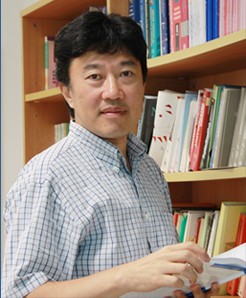报告题目:I/O Efficient: Computing SCCs in Massive Graphs
报告人:Jeffrey Xu Yu 教授(香港大学)
报告时间:5月24日 15:00—16:30
报告地点:中北校区数学馆201
主持人:金澈清 教授

报告摘要:
A strongly connected component (SCC) is a maximal subgraph of a directed graph G in which every pair of nodes are reachable from each other in the SCC. With such a property, a general directed graph can be represented by a directed acyclic graph (DAG) by contracting an SCC of G to a node in DAG. In many real applications that need graph pattern matching, topological sorting, or reachability query processing, the best way to deal with a general directed graph is to deal with its DAG representation. Therefore, finding all SCCs in a directed graph G is a critical operation. The existing in-memory algorithms based on depth first search (DFS) can find all SCCs in linear time w.r.t. the size of a graph. However, when a graph cannot resident entirely in the main memory, the existing external or semi-external algorithms to find all SCCs have limitation to achieve high I/O efficiency. In this talk, we discuss new I/O efficient semi-external algorithms to find all SCCs for a massive directed graph G that cannot reside in main memory entirely. To overcome the deficiency of the existing DFS based semi-external algorithm that heavily relies on a total order, we explore a weak order based on which we investigate new algorithms. We give a new two phase algorithm, namely, tree construction and tree search. In the tree construction phase, a spanning tree of G can be constructed in bounded sequential scans of G. In the tree search phase, it needs to sequentially scan the graph once to find all SCCs. In addition, we discuss a new single phase algorithm, which combines the tree construction and tree search phases into a single phase, with three new optimization techniques. They are early acceptance, early rejection, and batch processing. By the single phase algorithm with the new optimization techniques, we can significantly reduce the number of I/Os and CPU cost.
个人简介:
Dr Jeffrey Xu Yu is a Professor in the Department of Systems Engineering and Engineering Management, the